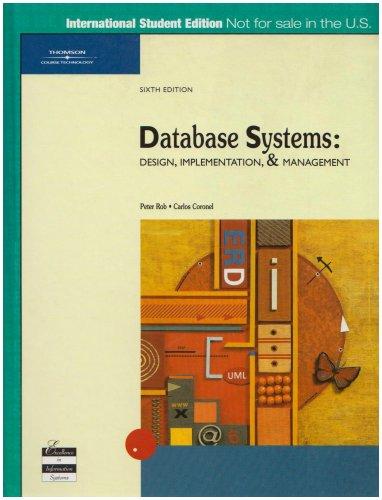Question
Whenever possible, when answering a question below, you should hand in a printout of the packet(s) within the trace that you used to answer the
Whenever possible, when answering a question below, you should hand in a printout of the packet(s) within the trace that you used to answer the question asked. Annotate the printout3 to explain your answer. To print a packet, use File->Print, choose Selected packet only, choose Packet summary line, and select the minimum amount of packet detail that you need to answer the question. 1. Select one UDP packet from your trace. From this packet, determine how many fields there are in the UDP header. (You shouldnt look in the textbook! Answer these questions directly from what you observe in the packet trace.) Name these fields. 2. By consulting the displayed information in Wiresharks packet content field for this packet, determine the length (in bytes) of each of the UDP header fields. 3. The value in the Length field is the length of what? (You can consult the text for this answer). Verify your claim with your captured UDP packet. 4. What is the maximum number of bytes that can be included in a UDP payload? (Hint: the answer to this question can be determined by your answer to 2. above) 5. What is the largest possible source port number? (Hint: see the hint in 4.) 6. What is the protocol number for UDP? Give your answer in both hexadecimal and decimal notation. To answer this question, youll need to look into the Protocol field of the IP datagram containing this UDP segment (see Figure 4.13 in the text, and the discussion of IP header fields). 7. Examine a pair of UDP packets in which your host sends the first UDP packet and the second UDP packet is a reply to this first UDP packet. (Hint: for a second packet to be sent in response to a first packet, the sender of the first packet should be the destination of the second packet). Describe the relationship between the port numbers in the two packets.
with current time stamp
Step by Step Solution
There are 3 Steps involved in it
Step: 1

Get Instant Access to Expert-Tailored Solutions
See step-by-step solutions with expert insights and AI powered tools for academic success
Step: 2

Step: 3

Ace Your Homework with AI
Get the answers you need in no time with our AI-driven, step-by-step assistance
Get Started


